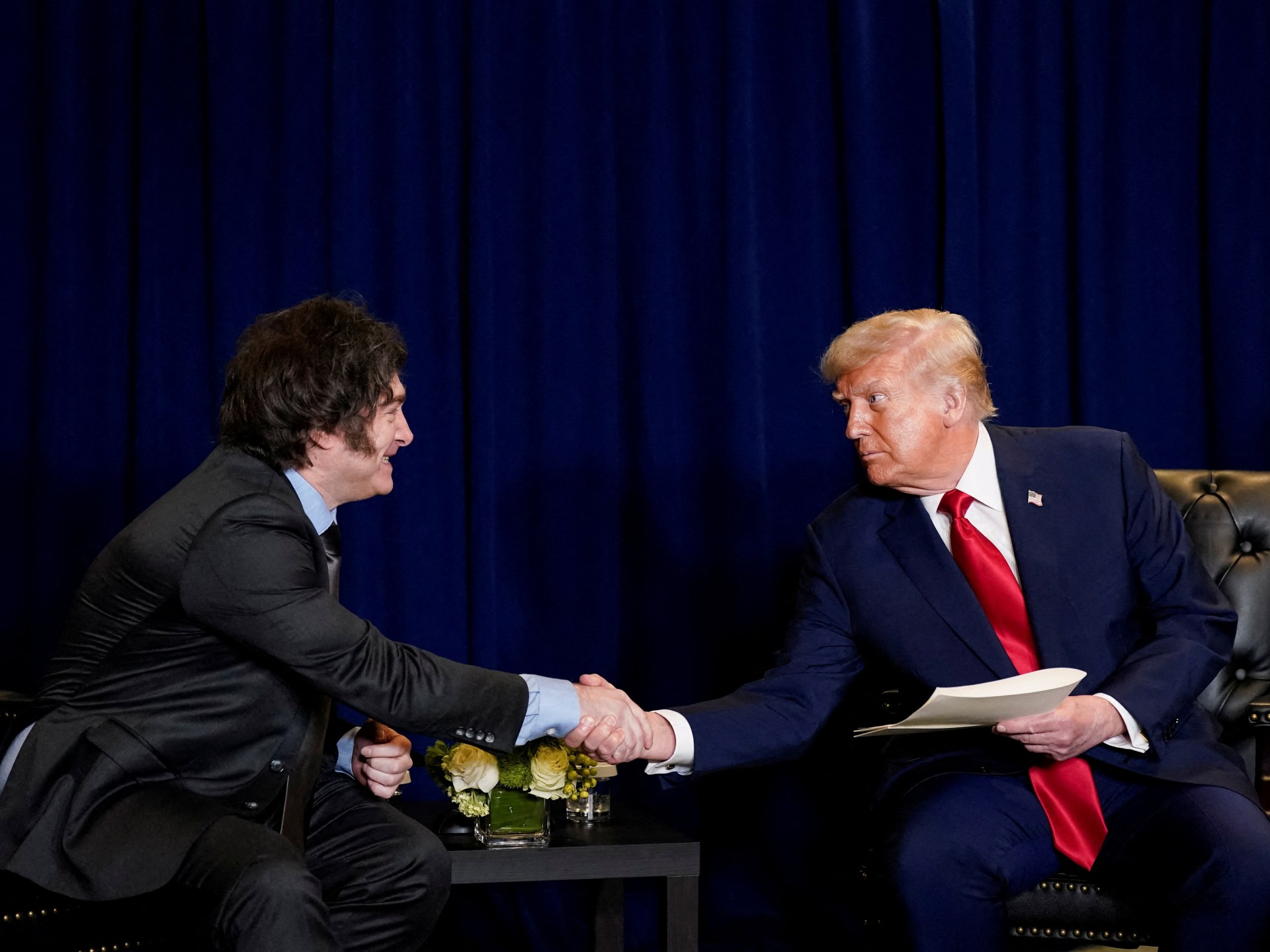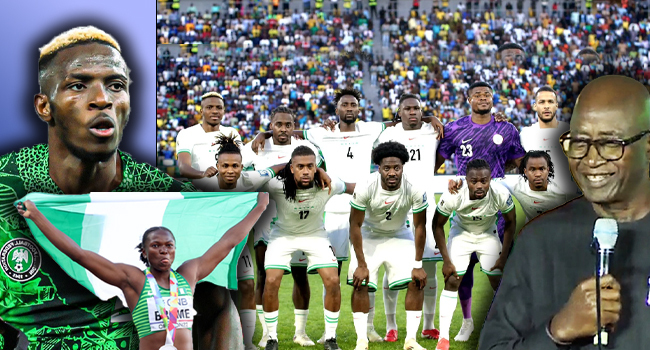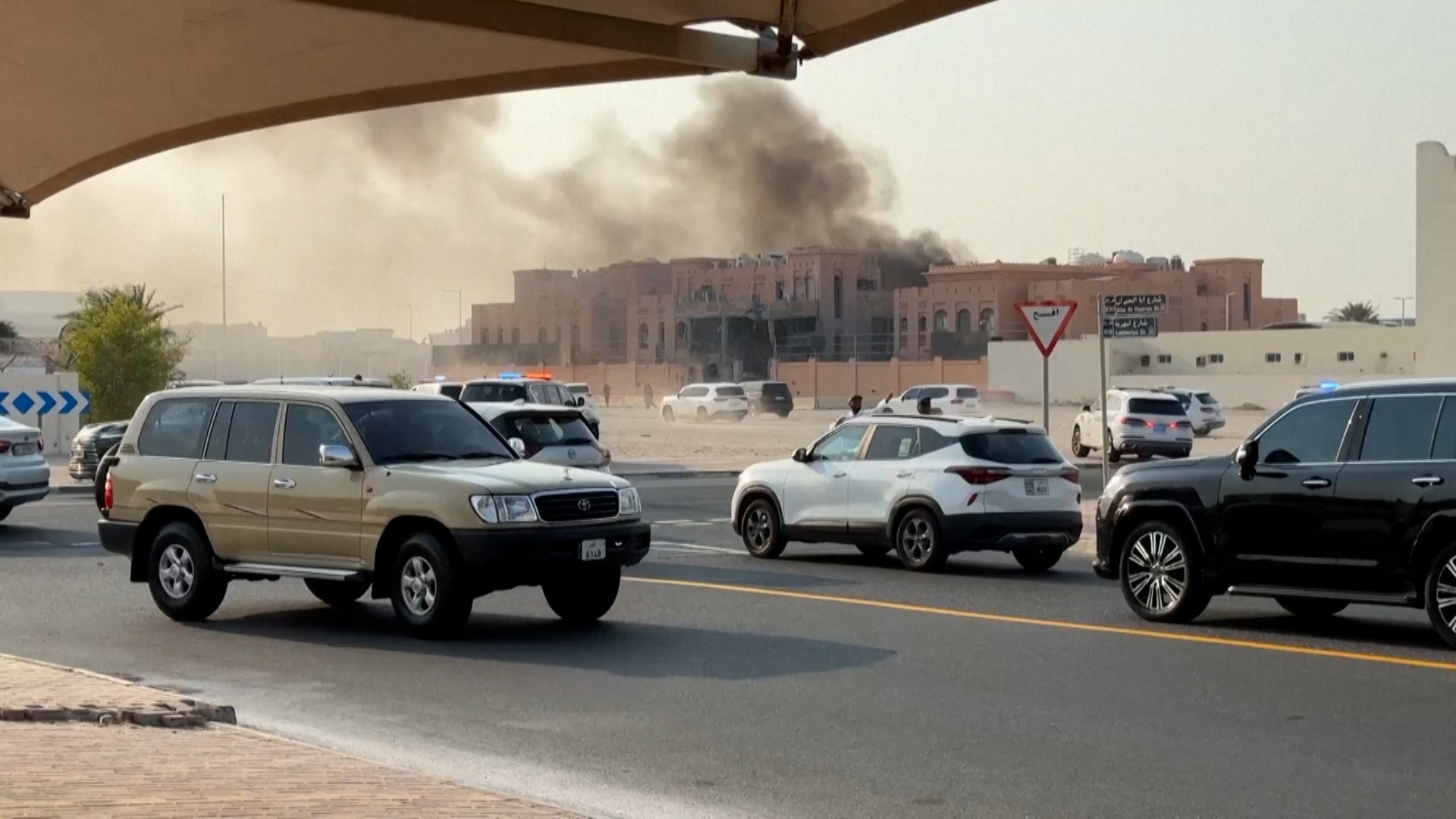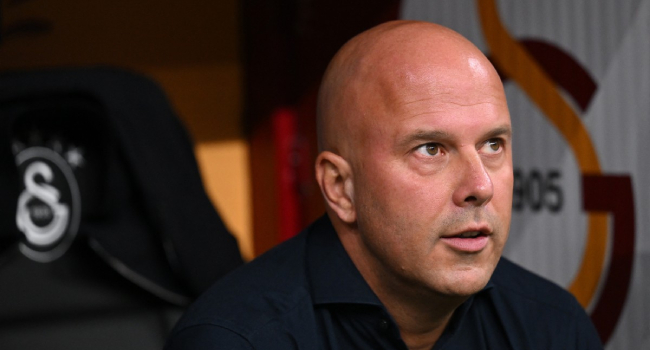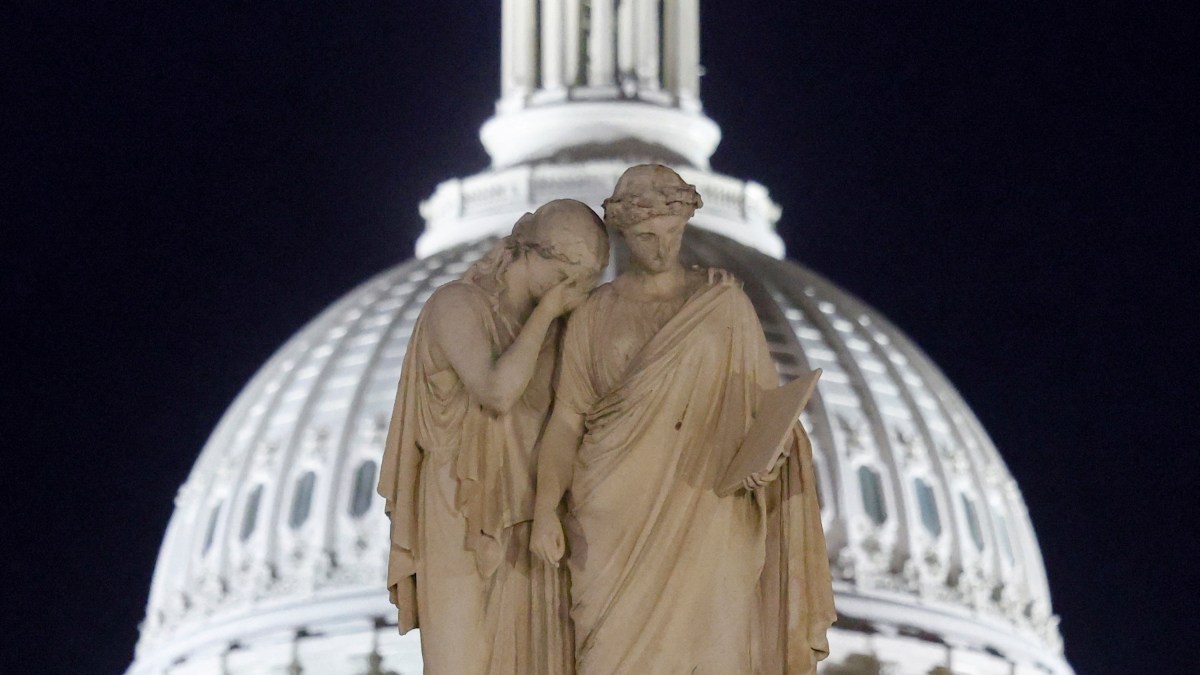The United States government shutdown began on Wednesday after Democrats and Republicans in the Senate failed to agree on a short-term government funding plan.
Here is what happens next.
Recommended Stories
list of 4 itemsend of list
Why has the US government shut down?
The US government shutdown began on 00:01 EDT (04:01 GMT) on Wednesday, which marked the beginning of the new fiscal year, at which point, the past year’s funding for government operations expired.
Republicans control both chambers of Congress, but failed to gather consensus to pass their bill laying out funding for government operations until November 21. Without this bill, the government cannot function.
Democrats refused to support the bill unless Republicans reverse recent cuts to Medicaid enacted under Trump’s One Big Beautiful Bill in July. Democrats proposed alternative solutions to the bill, but these were rejected by the Republicans. Congress was left deadlocked.
What happens to government employees now?
When the government shuts down, agencies must “furlough” – suspend or discharge – their “non-excepted” – or non-essential – employees.
These furloughed employees receive no pay for the duration of the shutdown. Once the government resumes operations, most will receive back pay, thanks to a 2019 bill passed by Congress enshrining this into law.
That law makes no mention of contract staff, however, meaning cleaning staff and other contractors working in affected government departments and agencies will only be paid if their contracting firm has budgeted for this.
“Excepted” employees are defined as those “who protect life and property”. These essential workers continue in their jobs during the shutdown but won’t be paid until the shutdown ends.
Each agency has already been required to submit its own staffing plan in the event of a government shutdown.
The funding lapse could lead to approximately 750,000 federal employees being furloughed each day of the shutdown, according to the Congressional Budget Office (CBO). This would result in a daily loss of about $400m in wages, it said.
Many of these people may not return to their jobs, however. While the US government has faced dozens of shutdowns before the current one – and federal employees have been furloughed – the White House instructed government agencies to prepare for large-scale layoffs of federal workers in this case, via a memo from the White House’s Office of Management and Budget (OMB) on September 24.
What does ‘furlough’ mean, and how do people pay bills in the meantime?
To be furloughed means to be suspended or discharged for a period of time without pay.
“When you’re furloughed, you’re on leave without pay, just as you might remember that many people were furloughed during the pandemic,” Scott Lucas, a professor of US and international politics at the Ireland-based University College Dublin’s Clinton Institute, told Al Jazeera.
“In this case, however, if you’re without pay, there’s also no federal support payments to cover this.”
Two years into Trump’s first term, in December 2018, a 35-day partial government shutdown occurred – the longest in modern US history – after Congress again failed to agree on government funding. Nine federal departments were fully or partially closed: agriculture, commerce, homeland security, housing and urban development, interior, justice, state, transportation and treasury.
Lucas explained that during that shutdown, many people were forced to take out loans or rely on family and friends to get by. Lucas added that some people went to food banks, which are nonprofit charitable organisations that store surplus amounts of food to distribute to those struggling financially.
“There’s no real safety net for what takes place. So that’s an immediate human cost of what’s going on here,” Lucas said.
What will stay open and what will shut down?
Here is what will happen to different government agencies and other services in the US during the shutdown.
The Social Security Administration will continue to issue disability and retirement benefits since it is funded by mandatory spending. However, it will furlough 12 percent of its staff and put all marketing campaigns on pause, according to its shutdown plan.
Medicare and Medicaid will also continue functioning during the shutdown, since they are also funded by mandatory spending.
The FBI, CIA, Drug Enforcement Administration, Coast Guard and other federal law enforcement agencies will continue to operate during the shutdown, and employees will stay on the job but will be unpaid until the shutdown comes to an end.
The US Postal Service, which earns its revenue from its services and is not funded by tax money, will continue operations during the shutdown. Post offices will remain open.
The International Revenue Service (IRS) will remain fully staffed for the first five days of the shutdown. The agency’s strategy does not detail what will happen to its staff if the shutdown lasts longer than five days. This year, the IRS lost about a quarter of its staff, many as a result of layoffs ordered by the Trump administration, and now employs approximately 75,000 people.
More than 13,000 air traffic controllers will continue to work during the shutdown. However, they will not get paid until the shutdown ends, according to the Federal Aviation Administration (FAA). There are more than 14,000 air traffic controllers in the US, according to the FAA website. Most Transportation Security Administration (TSA) employees will also continue working.
Courts could run out of funds to remain fully operational as early as Friday, the federal judiciary warned last week. This marks a shift from the last shutdown during Trump’s first term, when courts stayed open for five weeks.
During the shutdown, the two million US military personnel will remain on duty without pay until it ends, and National Guard forces deployed to cities by Trump will also continue working. Trump has ordered the Department of Defense to rename itself the Department of War, but this requires congressional approval.
Most Justice Department staff overseeing the running of immigration courts will continue working, as Trump has declared illegal migration a “national emergency”, according to a statement released by the department.
Employees who coordinate with state and local officials to order immigrant arrests will also remain on the job. Border patrol, immigration enforcement agents and most customs officers will stay at their posts, according to Department of Homeland Security’s shutdown strategy.
The Small Business Administration will furlough 24 percent of its staff, according to its statement.
About 4,000 Federal Emergency Management Agency (FEMA) employees will be furloughed, according to the agency. However, FEMA has about $2.3bn in its Disaster Relief Fund as of September 15, to respond to a disaster such as a major hurricane.
US Customs and Border Protection tariff collections will continue, the Department of Homeland Security said on Tuesday. It also said operations funded by US Citizenship and Immigration Services fees would continue, along with services and operations essential for the running of the agency’s exempt activities.
Will Democrats compromise over Medicare cuts in order to resolve this?
It does not seem likely that the Democrats will compromise on their demands for Medicare cuts to be reversed – or for Medicaid subsidies to be extended beyond the end of this year – in order to get government operations up and running again.
When the White House released its memo informing agencies that staff will be laid off, not just furloughed, it earned condemnation from Democratic leaders in Congress.
“This is an attempt at intimidation,” Schumer wrote in response to the memo on X on September 25. Jeffries responded as well, posting on X on the same day: “We will not be intimidated by your threat to engage in mass firings.”
Lucas said that one reason the Democrats are unlikely to fold now is that “a lot of Democrats wanted to hold the Trump administration to account back in March because the Trump administration was already running roughshod through the government”.
Back then, the Department of Government Efficiency (DOGE) was laying off hundreds of thousands of government employees in its bid to cut government spending. Agencies such as the US Agency for International Development (USAID) were shut down completely, a move ruled unconstitutional by US District Court Judge Theodore Chuang. The Trump administration also cut back on research funding in areas such as medical care and the environment.
What else could Trump do during the shutdown?
Trump has taken aim at the Democrats, whom he blames for this shutdown.
“So we’d be laying off a lot of people that are going to be very affected. And they’re Democrats, they’re going to be Democrats,” Trump told reporters in the Oval Office on Wednesday.
He added that a “lot of good can come down from shutdowns” and suggested that he could make use of the shutdown to “get rid of a lot of things we didn’t want, and they’d be Democrat things”.
Lucas speculated that Trump is likely referring to US government programmes and departments here. Earlier this year, he signed an executive order to dismantle the Department of Education. However, congressional approval would normally be required for this.
Trump could use the shutdown as an opportunity to find ways to push ahead with such plans. “He’ll label them as ‘Democrat’, whether it means closing agencies, trying to shut down the Department of Education, whether it is completely gutting the ability of other agencies to operate,” Lucas said.
Lucas added that this could also mean undermining the operations of agencies such as the Environmental Protection Agency, which has now largely become a “tool for the fossil fuel industry”, or the Justice Department’s Office of Civil Rights, which has been “neutered” because its focus has been redirected to “going after Trump’s enemies”.
“It’s anything that doesn’t suit his particular vision of his power. He goes after it. He kills it or he makes it loyal to him. That’s his vision.”
Trump could well use a shutdown to dismantle government functions, Max Stier, chief executive of the Partnership for Public Service, a nonprofit focused on improving the federal government, was quoted as saying by PolitiFact.
If lawmakers can’t reach a deal, Stier said, Trump “will have enormous latitude to determine which services, programmes and employees can be sidelined – decisions that could go far beyond what has occurred during past shutdowns”.
How have markets responded to the US government shutdown?
Markets were braced for the shock and have, therefore, remained stable, experts say. The US’s three major stock indices – the Dow Jones Industrial Average, S&P 500 and Nasdaq – closed with slight increases on Tuesday.
“I think that’s in part because they priced in the fact that they thought a shutdown was going to be likely and it’s also because of other factors that they’re watching that are affecting global portfolios, as well as their investments in the US,” Lucas said.

